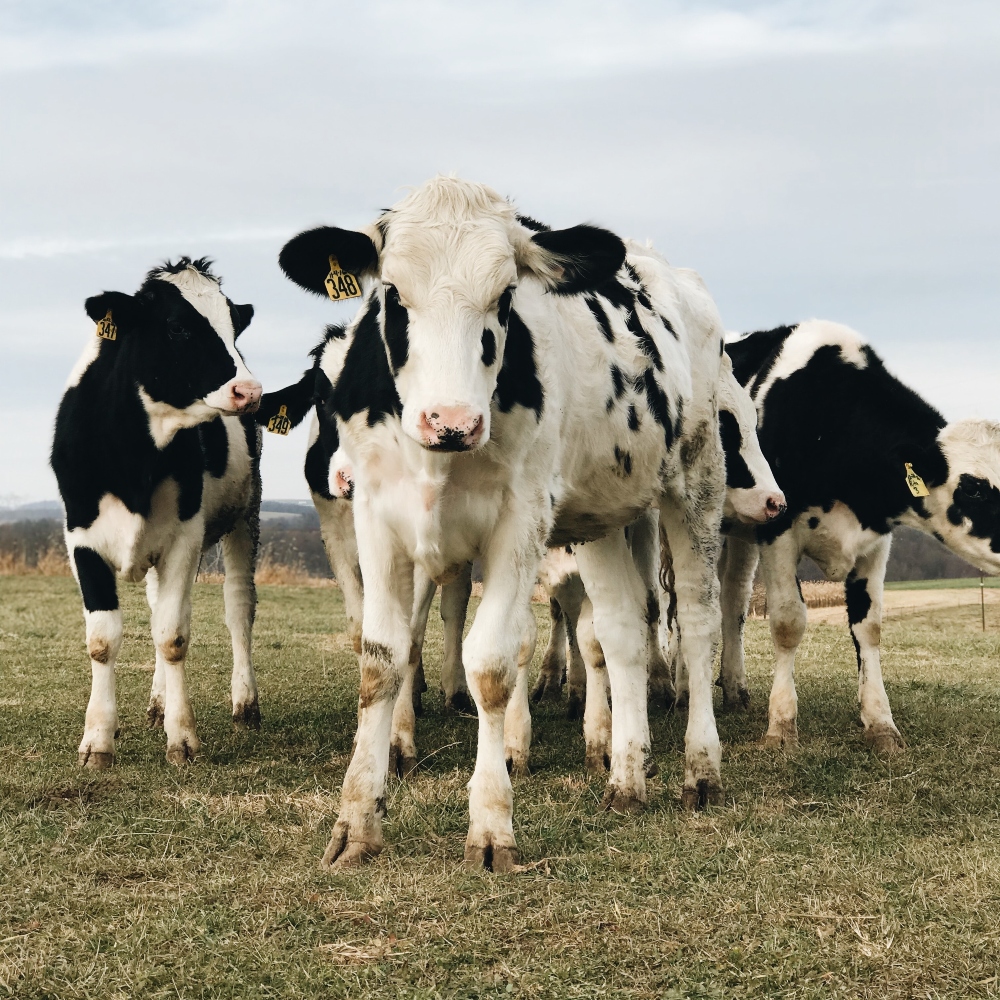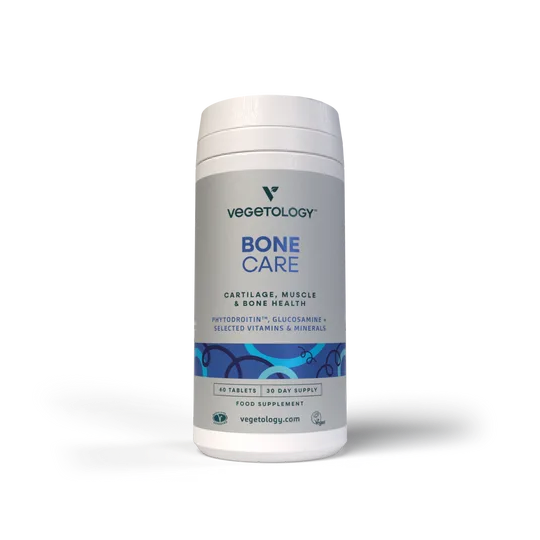From B12 to Vitamin D, Key Vitamins Come From Animals, But You Can Get Them on a Vegan Diet, Too
6 Mins Read
Vitamins including B12 and D are critical for health. But they’re most often sourced from animals, which is not ideal if you follow a vegan diet. Here’s how to get them from alternative sources.
A growing body of research suggests that following a whole-food, plant-based diet is one of the healthiest ways to live. This diet—which is associated with a lower risk of chronic diseases, like cancer, type 2 diabetes, and heart disease—relies on a rainbow of fruits, vegetables, beans, legumes, seeds, and nuts. This means it is a rich source of fiber, antioxidants, vitamins, and minerals, all of which are vital for optimal nutrition. But, like any diet, it is not perfect.
There are some vitamins that can only come from animals or are more difficult to get from plants, which may require supplementation depending on your individual health needs. To help you figure out what you may or may not want to consider supplementing, here, we take a closer look at some of the nutrients that (mostly) come from animal sources. But before you make any major personal dietary changes, it’s always best to consult with a nutrition or health professional first.
Essential vitamins and their vegan sources
Another thing to keep in mind is that, while vegan versions are available, many supplements themselves contain animals. According to research from Terraseed, a vegan multivitamin brand, more than 50 percent of supplements on the market contain at least one animal ingredient, which results in the slaughter of around 24 billion animals every year. So, remember: always do your research first before you buy.
1. Vitamin B12
Vitamin B12, which is also known as cobalamin, is essential because it helps our bodies to form red blood cells and DNA, and it’s also important for nerve function. When we don’t have enough, it can lead to symptoms like fatigue and memory loss, and even nerve damage and anemia. Our bodies don’t make B12, and the biggest dietary sources of the vitamin are animal-based; they include fish, shellfish, liver, red meat, and poultry. But it is also possible to find B12 in fortified plant-based cereals and milk, as well as nutritional yeast and, of course, supplements, which come in tablet, gummy, or spray form. In fact, the overall vitamin B12 market size is valued at around $266 million. Vegan brands include Live Conscious, Future Kind, and Mykind Organics.

2. Collagen
Unlike vitamin B12, our bodies do make collagen, which is a protein that makes up connective tissue. However, as we get older, this production drops, and it shows in our skin. We start to develop wrinkles, joints become more fragile, and the skin begins to sag. In a bid to boost their collagen, some turn to supplements, which contain collagen from animals like fish, pigs, and cows. Because, like us, all animals have collagen in their connective tissue.
The collagen market is huge, and by 2028, it is predicted to hit nearly $17 billion. But it is possible to find plant-based supplements that help with collagen production. In fact, this market is growing too, and it’s expected to hit nearly $6 billion by the end of this year. But it’s important to note, these supplements, which are offered by brands like Rae Wellness and Myprotein, don’t contain any actual collagen. Instead, they work by blending vitamins and minerals that may promote our own collagen production. You can also find these nutrients in food. Legumes, nuts, and seeds, for example, contain zinc, a mineral that helps to protect our body’s collagen.
3. Vitamin D3
Vitamin D is essential for bone health, as it helps to regulate calcium and phosphate. When we don’t have enough vitamin D, this can result in symptoms like insomnia, bone aches, depression, and hair loss. In children, it may also lead to rickets, which is the softening of bones.
One key source of vitamin D is sunlight, which means that, in the summer, most people get enough. But in the winter, particularly in countries with low levels of light, it becomes more difficult. Animal foods, like fish, red meat, liver, and egg yolks, do contain vitamin D, and vegans can also get it from fortified foods, like cereal and nutritional yeast.
Many also choose to supplement vitamin D, which is represented in the growth of the market, which hit more than $1 billion in 2021. But it’s important to note that different types come from different sources.
Vitamin D2, for example, can come from vegan sources, but vitamin D3 supplements are often sourced from lanolin, which is essentially the grease from sheep’s wool. However, The Vegan Society notes that it is possible to obtain vegan D3 supplements, and these are usually made with lichen. The composite organism from algae and fungi is one of the only plant sources of the vitamin. Brands offering vegan vitamin D3 include Myvegan and Together Health.

4. DHA
DHA (long name: docosahexaenoic acid) is an omega-3 fat that supports the health and function of our brains and eyes. While our bodies make a small amount, it isn’t enough in itself, so we also need to make sure we’re getting more from dietary sources. If we don’t have enough DHA, it can result in symptoms like fatigue, poor memory, depression, joint pains, and bad circulation. The main food sources of DHA are fatty fish, like tuna, sardines, and herring. But vegan supplements do exist, most of which rely on algae oil as their primary ingredient. The overall supplement market, which includes products made with algae, as well as fish oil products, is worth more than $2.5 billion. For vegan options, try brands like Myprotein and Omvits.
5. Carnosine
Carnosine is a dipeptide molecule that we produce naturally in our muscle tissue and brain. Recent research has suggested that because of its antioxidant properties, carnosine may help to protect against certain chronic diseases, like Alzheimer’s and heart disease. Studies into supplementation are still ongoing, but despite this, the market is growing. In 2021, it was valued at $25 million.
In food form, carnosine can be found in animal sources, like beef and fish. It is not possible to consume carnosine in plant-based foods. But, per the Vegetarian Times, supplementing beta-alanine—which, alongside histidine, is one of the amino acids that make up the molecule—may result in higher levels of carnosine in the body. Myvegan offers a Bata-Alanine powder.

6. Chondroitin
We all have chondroitin, a structural component of cartilage, naturally in our bodies. But in supplement form, it is sometimes used to treat osteoarthritis, a condition that affects the joints and causes them to become stiff and painful. The market is significant and is currently worth more than $1 billion. This is because some research suggests that taking extra chondroitin in this way may help to prevent cartilage from breaking down. That said, it is not an established medical treatment.
Most chondroitin supplements on the market contain beef or shark cartilage. But some brands claim to have created vegan alternatives. Vegetology, for example, makes Phytodroitin, “a plant-origin alternative to chondroitin.”
7. Taurine
Taurine is an amino acid with many different roles in the body. It helps to regulate calcium, for example, as well as create bile salts for digestion and support our immune systems. Our bodies produce taurine naturally, so deficiency is rare. But some research suggests that having extra taurine may help to improve exercise performance and could also help to manage blood pressure and diabetes. This is partly why the market is growing and is expected to reach $472 million by 2029. That said, studies are ongoing.
Key dietary sources of natural taurine are all animal-based and include meat and seafood. But synthetic taurine is often vegan and can be found in many supplements on the market. Examples of brands offering vegan taurine include Solgar and Cytoplan.



